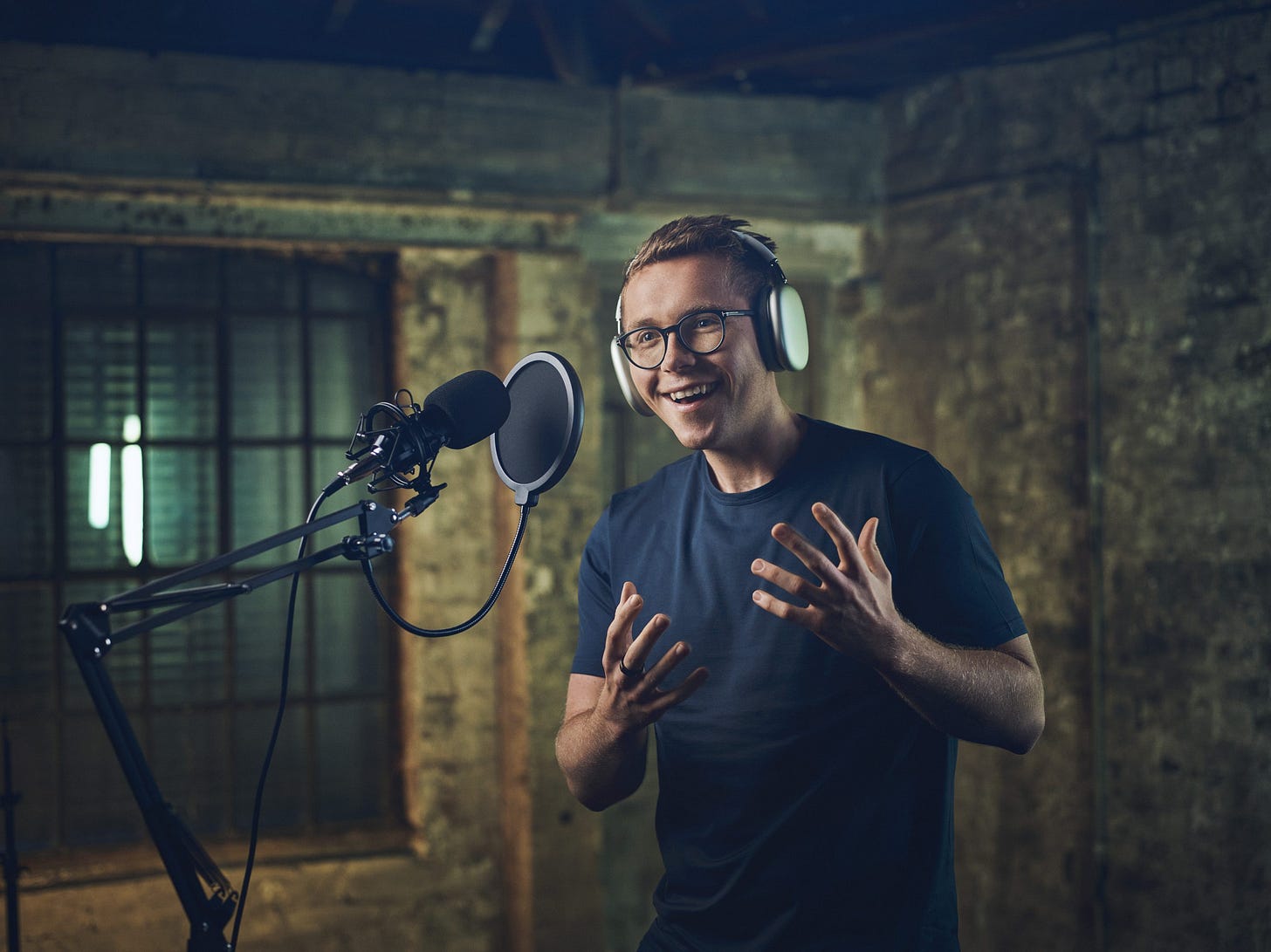Welcome to 3-2-1nsight from Marketing Sciences. Download my 130 slide consumer research deck looking at the future consumer in 2021, It’s a ton of primary research, and you can download it for free.
Download it here
This week we take a look at how creators are thriving, esp. those making a presence via audio first. We dig into what Alex “Call her Daddy” Cooper’s $60M+ deal means for podcasting, how musicians are making a better living on Twitch than Spotify, and how a podcast host is now a thriving VC investor.
3 Stories
First, we had Logan Paul fight Floyd Mayweather hoping to make anywhere from $5M - $20M, well Alex Cooper is making at least $20M a year to keep doing what she’s doing. Even in the world of influencer celebrities and social media stars, there is a clear dichotomy of makers and takers. Spotify is slowly building up a roster of the must-have stars for their shows to drive subscribers and their podcast ad network. If the bet pays off, Alex Cooper’s dedicated 5M+ audience migrating onto Spotify looks like a steal for $60M (or $12 dollars a listener).
Can Streaming Pay? Musicians Are Pinning Fresh Hopes on Twitch. - NYT
We can’t all be Alex Cooper, but we can all sure make a great living by diversifying our revenue streams. That's exactly what musicians are doing as so many streaming services fall victim to the power law, where only the top 2% rake in most of the money, leaving the other 98% with around $1,000 in annual payouts. For smaller musicians, the best way around this is to go directly to their fans. Twitch claims their average musician on their platform can make $50K a year with around 183 active streams, which seems a lot more doable than getting 5M-10M streams on Spotify to get a similar payout.
Harry Stebbings turns up the volume on 20VC with a new $140M fund - Tech Crunch
Direct payments or large lump sums aren’t the only way to stack cheddar as an audio creator. You can also leverage your insights and popularity into a new VC fund, which is what the host of “20 minute VC” has done. His 200K subscribers and access to the top leaders in tech have allowed him to raise a hefty $140M to make investments that might yield a far greater return than even Alex’s $60M. I mean he already was an early investor in Clubhouse, which might be worth something if Twitter or Facebook doesn’t eat their lunch first.
2 Takeaways
Audio creators build the most loyal fans
In the early days, musicians could drive massive amounts of fans all over the country to see them perform. That translated into music festivals, where for many fans that were the first time they got to lay eyes on their star performing. MTV came and created cultural moments when their music video would drop (Michael Jackson’s Thriller arguably launched MTV). Then came Napster, podcasts, and then streaming. All the while, in parallel, there was always a consistent talk radio then slowly morphed into Fox News. Audio creators have always led the way in bringing their fans across platforms. And we continue to see this, as platforms try to lock in stars in order to bring in new fans and lock them into their platforms. Spotify first tried it with Bill Simmons (who’s a radio host without a radio program), then Joe Rogan, Dax Shepard, and now Alex Cooper.
Audio stars are pioneers at building robust monetization streams
With the advancements in audio technology (live audio rooms, AirPods, spatial audio, etc.) so many audio first stars are now branching out onto multiple platforms to build up new ways to monetize. Gone are the days when audio stars were only reliant upon music royalties to get paid. Instead, they win first in your earbuds and then quickly build loyalty amongst their audience and bring them onto new platforms or ventures with better monetary terms for them. Platforms realize this and are now trying to build out more audio features in order to entice more audio creators onto their platform. Facebook is launching podcasts next week and showed off their clubhouse clone for the first time this week. Audio stars, like adult stars, are always at the cutting edge of monetizing their work, because of the trust and routine they're able to build with their fans. That trust also allows them to have the most intimate relationships with their fans, so they’re able to know how to best monetize. Whether if it’s getting tips for deal flow to have an investing edge, building independent subscription revenue on streaming platforms, launching merch, or getting paid to be exclusive, true audio stars build the most lasting and resilient business model, creating a die-hard fan base.
1nsight
The most critical component of success for a creator is finding the right platform.
Does every creator work as an audio star? The answer looks like no, Lana Rhodes has an amazing OnlyFans channel, but she doesn’t appear to work as a podcaster trying to encroach onto Alex Cooper’s content vertical. Would the Paul brothers be able to try to moonlight as boxers if they started out as podcasters rather than YouTubers? My guess is probably not because hearing people do stupid things is a far cry from seeing people do stupid things. Would Charli D'Amelio’s career take off without Tik Tok? Would Instagram’s algorithm prioritize her dance routines enough that she would’ve been able to gain so much exposure?
The most important success indicator for any creator is how their content fits on certain platforms. Afterward, one can measure if they geared the content that's created towards the right audience. But without the platform piece, it’s too hard for any creator to build a strong enough fanbase that’ll travel with them across different platforms to help them monetize or display their influence.








